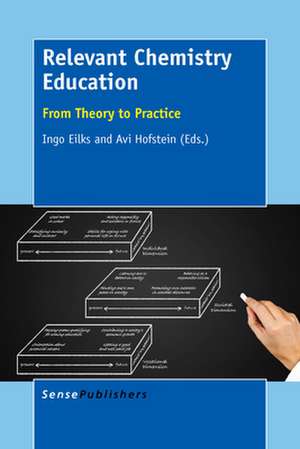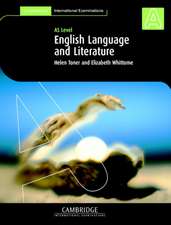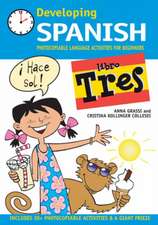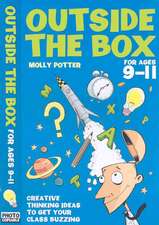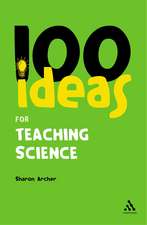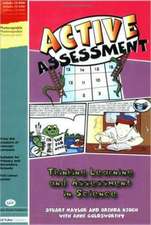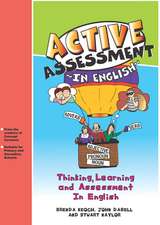Relevant Chemistry Education: From Theory to Practice
Ingo Eilks, Avi Hofsteinen Limba Engleză Paperback – 31 dec 2014
| Toate formatele și edițiile | Preț | Express |
|---|---|---|
| Paperback (1) | 433.86 lei 38-44 zile | |
| Brill – 31 dec 2014 | 433.86 lei 38-44 zile | |
| Hardback (1) | 642.23 lei 3-5 săpt. | |
| Sense Publishers – 18 iun 2015 | 642.23 lei 3-5 săpt. |
Preț: 433.86 lei
Nou
Puncte Express: 651
Preț estimativ în valută:
83.03€ • 86.36$ • 68.55£
83.03€ • 86.36$ • 68.55£
Carte tipărită la comandă
Livrare economică 08-14 aprilie
Preluare comenzi: 021 569.72.76
Specificații
ISBN-13: 9789463001731
ISBN-10: 9463001735
Pagini: 396
Dimensiuni: 156 x 234 x 21 mm
Greutate: 0.54 kg
Editura: Brill
Colecția Brill
ISBN-10: 9463001735
Pagini: 396
Dimensiuni: 156 x 234 x 21 mm
Greutate: 0.54 kg
Editura: Brill
Colecția Brill
Recenzii
“Two highly distinguished chemical educators, Ingo Eilks and Avi Hofstein, have brought together 40 internationally renowned colleagues from 16 countries to offer an authoritative view of chemistry teaching today. Between them, the authors, in 20 chapters, give an exceptional description of the current state of chemical education and signpost the future in both research and in the classroom. There is special emphasis on the many attempts to enthuse students with an understanding of the central science, chemistry, which will be helped by having an appreciation of the role of the science in today’s world. Themes which transcend all education such as collaborative work, communication skills, attitudes, inquiry learning and teaching, and problem solving are covered in detail and used in the context of teaching modern chemistry. The book is divided into four parts which describe the individual, the societal, the vocational and economic, and the non-formal dimensions and the editors bring all the disparate leads into a coherent narrative, that will be highly satisfying to experienced and new researchers and to teachers with the daunting task of teaching such an intellectually demanding subject. Just a brief glance at the index and the references will convince anyone interested in chemical education that this book is well worth studying; it is scholarly and readable and has tackled the most important issues in chemical education today and in the foreseeable future.”—Professor David Waddington , Emeritus Professor in Chemistry Education, University of York, United Kingdom
